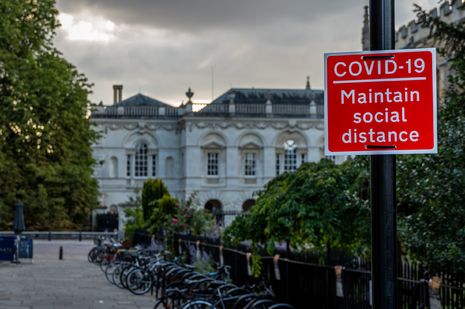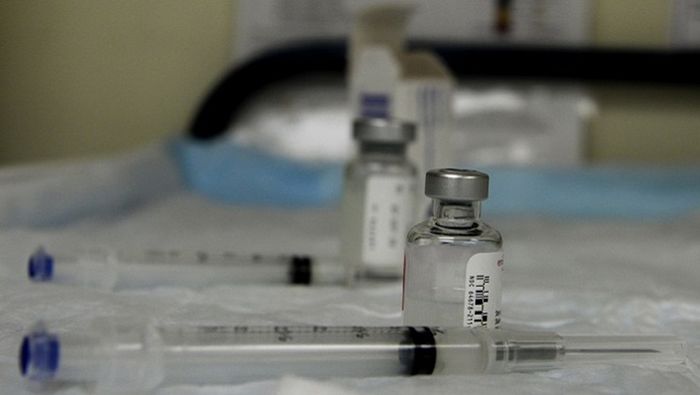Potential vaccine developed by Cambridge University could be ready for clinical trials by Autumn
After receiving £1.9 million in funding from the government on Wednesday, the University will aim to start clinical trials for its potential coronavirus vaccine in Autumn

A potential vaccine for Covid-19, developed by researchers at the University of Cambridge, could begin the clinical trial stage of development by late autumn or early next year.
The Cambridge vaccine candidate, known as DIOS-CoVax2, was nudged closer to the clinical trial phase of development after the University received a £1.9 million grant from the government on Wednesday (26/08).
The University’s vaccine candidate is a collaborative effort between Cambridge spin-out company DIOSynVax, which is contributing an extra £400,000 for the trial, the University of Cambridge and the University Hospital Southampton NHS Foundation Trust.
The vaccine, which, if effective, would combat all coronaviruses, attempts to model the structure of the SARS-CoV-2 virus by taking information from both Covid-19 and its relatives.
The team then developed computer-generated antigen structures, which fight coronaviruses, that can teach the immune system to target key areas of the virus in order to train the body to have “beneficial anti-viral responses.”
These improved immune responses include T-cells, which remove virus-infected cells, and neutralising antibodies, which block virus infection.
One benefit of the “laser-specific” approach of DIOS-CoVax2 is that it minimises adverse hyper-inflammatory immune responses which can be caused by less ‘targeted’ vaccines. Hyper-inflammatory responses can in and of themselves cause life-threatening Covid-19.
Professor Jonathan Heeney, head of the Laboratory of Viral Zoonotics at the University of Cambridge, and founder of DIOSynVax, describes the benefit of the Cambridge vaccine’s “avoiding the parts that could make things worse” because “what we end up with is a mimic, a synthetic part of the virus minus those non-essential elements that could trigger a bad immune response.”
While most vaccines use RNA to deliver antigens, the Cambridge vaccine candidate is unique in using synthetic DNA. This ‘DNA vector model’ has proved “safe and effective...in early stage trials.”
Dr Rebecca Kinsley, chief operating officer of DIOSynVax and a postdoctoral researcher at the University of Cambridge, detailed that Cambridge’s “approach - using synthetic DNA to deliver custom designed, immune selected vaccine antigens - is revolutionary and is ideal for complex viruses such as coronavirus. If successful, it will result in a vaccine that should be safe for widespread use and that can be manufactured and distributed at low cost.”
Although other vaccines in development are ahead of DIOS-CoVax2, notably at Oxford, the Cambridge vaccine is different from its competitors because it does not have to be stored at low temperatures, making it much more practical for low and middle income countries to mass produce. There is also no requirement for it to be admitted using a needle; instead it can be delivered using a jet of air.
Professor Saul Faust, Director of the Southampton Clinical Research Facility, is especially enthused “that the clinical trial will test giving the vaccine through people’s skin using a device without any needles as together with stable DNA vaccine technology this could be a major breakthrough in being able to give a future vaccine to huge numbers of people across the world.”
 News / Judge Business School advisor resigns over Epstein and Andrew links18 February 2026
News / Judge Business School advisor resigns over Epstein and Andrew links18 February 2026 News / Gov grants £36m to Cambridge supercomputer17 February 2026
News / Gov grants £36m to Cambridge supercomputer17 February 2026 News / CUCA members attend Reform rally in London20 February 2026
News / CUCA members attend Reform rally in London20 February 2026 News / Union speakers condemn ‘hateful’ Katie Hopkins speech14 February 2026
News / Union speakers condemn ‘hateful’ Katie Hopkins speech14 February 2026 News / Hundreds of Cambridge academics demand vote on fate of vet course20 February 2026
News / Hundreds of Cambridge academics demand vote on fate of vet course20 February 2026










